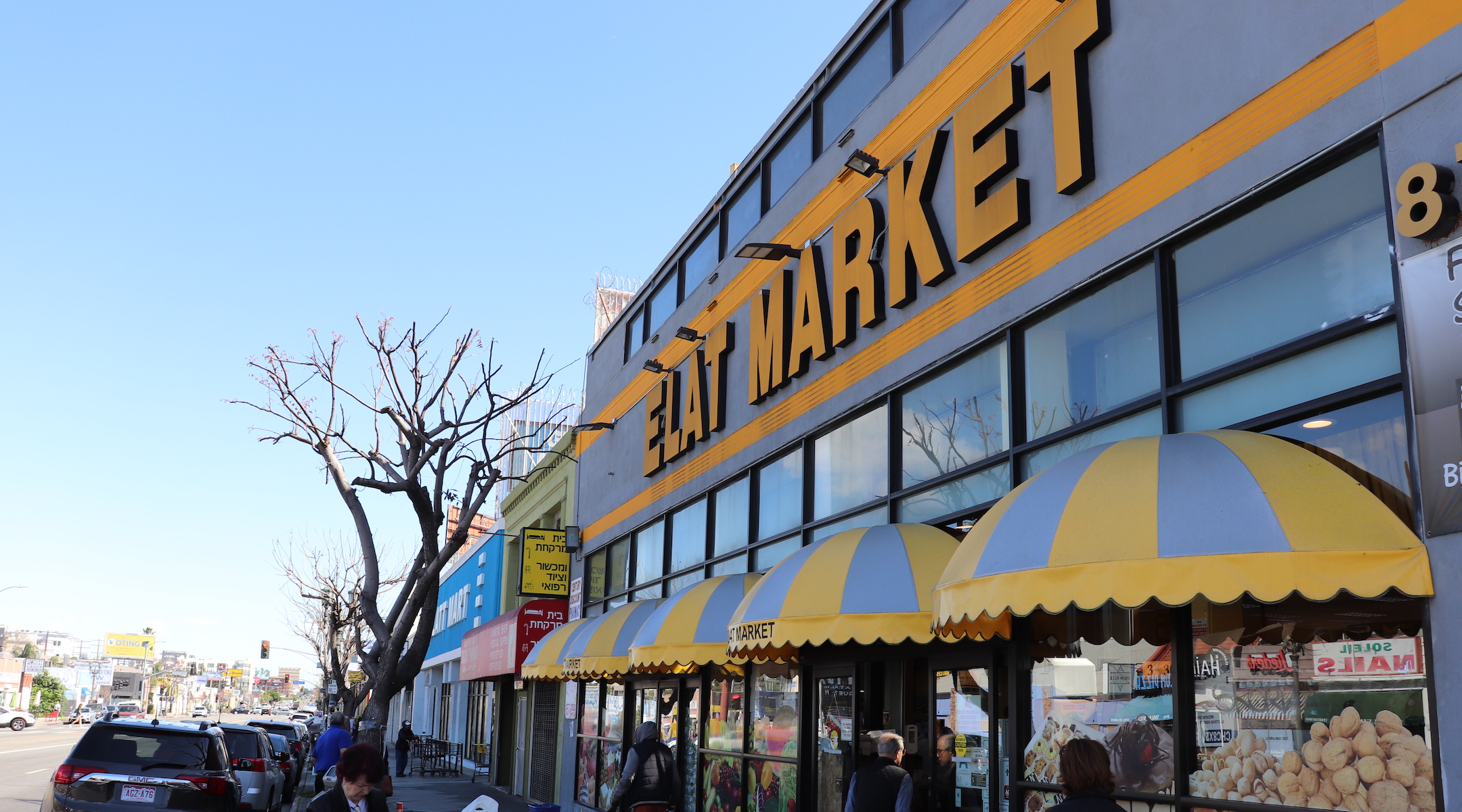LOS ANGELES (JTA) — Elat Market has everything needed for a Shabbat meal to make any Persian Jewish grandma proud — from Persian classics like seeded flatbreads, smoked fish and pickled vegetables to Israeli-style hummus and tahini.
Posters advertising Persian concerts hang above the nut counter where a dozen types of nuts are stacked in boxes along with colorful dried fruits.
In the vegetable aisle — all the greens are here to make a mean sabzi khordan, a herb-heavy dish traditionally served alongside a meal — women stop their carts to kiss each other on the cheek and greet each other loudly in Farsi.
“We are like a family with all the customers here,” co-owner Farhad “Fred” Kamani said in early March as he looped around the store aisles, stopping to pick up things that have fallen on the floor — an apple, a Coke can — along the way.
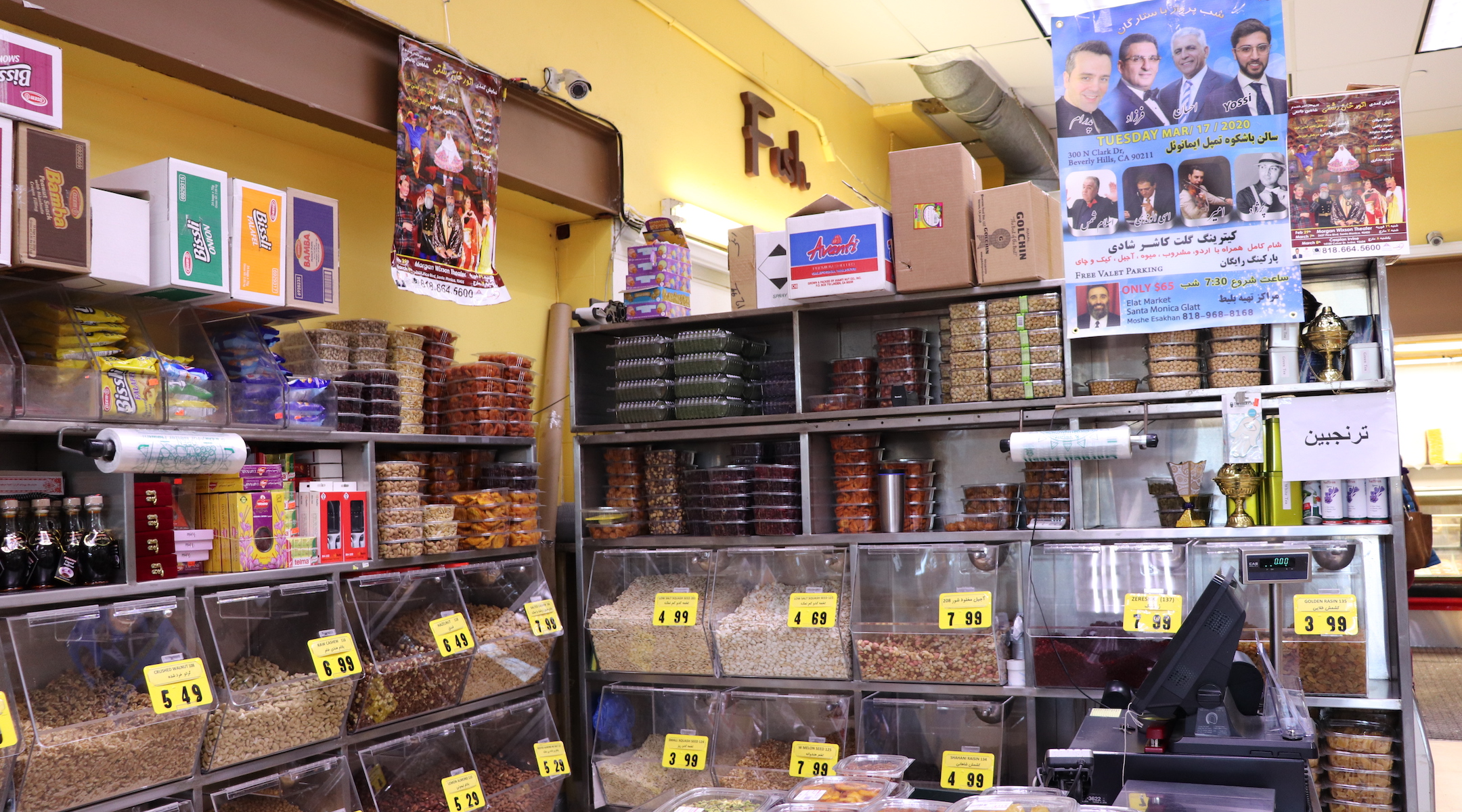
Some of the wares at the Elat Market, which has become iconic in the Persian Jewish community of Los Angeles. (Josefin Dolsten)
Things look different now. The store is limiting the number of customers who can enter and requiring everyone to wear face masks to curb the spread of the coronavirus, but Kamani says business is “not bad.”
The store, which opened in 1984, has become iconic in this city’s Persian Jewish community, which numbers about 50,000.
Kamani and his two business partners bought Elat Market, which is named for the Israeli beach city, in 1987 from the original family who owned it. In 1989 it burnt to the ground, but Kamani and his partners rebuilt the market — tripling its size to the current 10,000 square feet.
Elat Market is located in the Pico-Robertson neighborhood, one of the Iranian Jewish community’s nexuses. (Some Jewish businesses in Los Angeles were damaged by looting that followed recent protests, but Elat escaped harm.) Next to it, kosher restaurants and pharmacies advertise their services in various combinations of Hebrew, Farsi or English.
“It represents a piece of the old country that allows a continuity of the culture of Iranian Jews when it comes to issues of the home, of the cuisine,” Sam Kermanian, a longtime community leader who serves as a senior adviser to the Iranian-American Jewish Federation, said of the store.
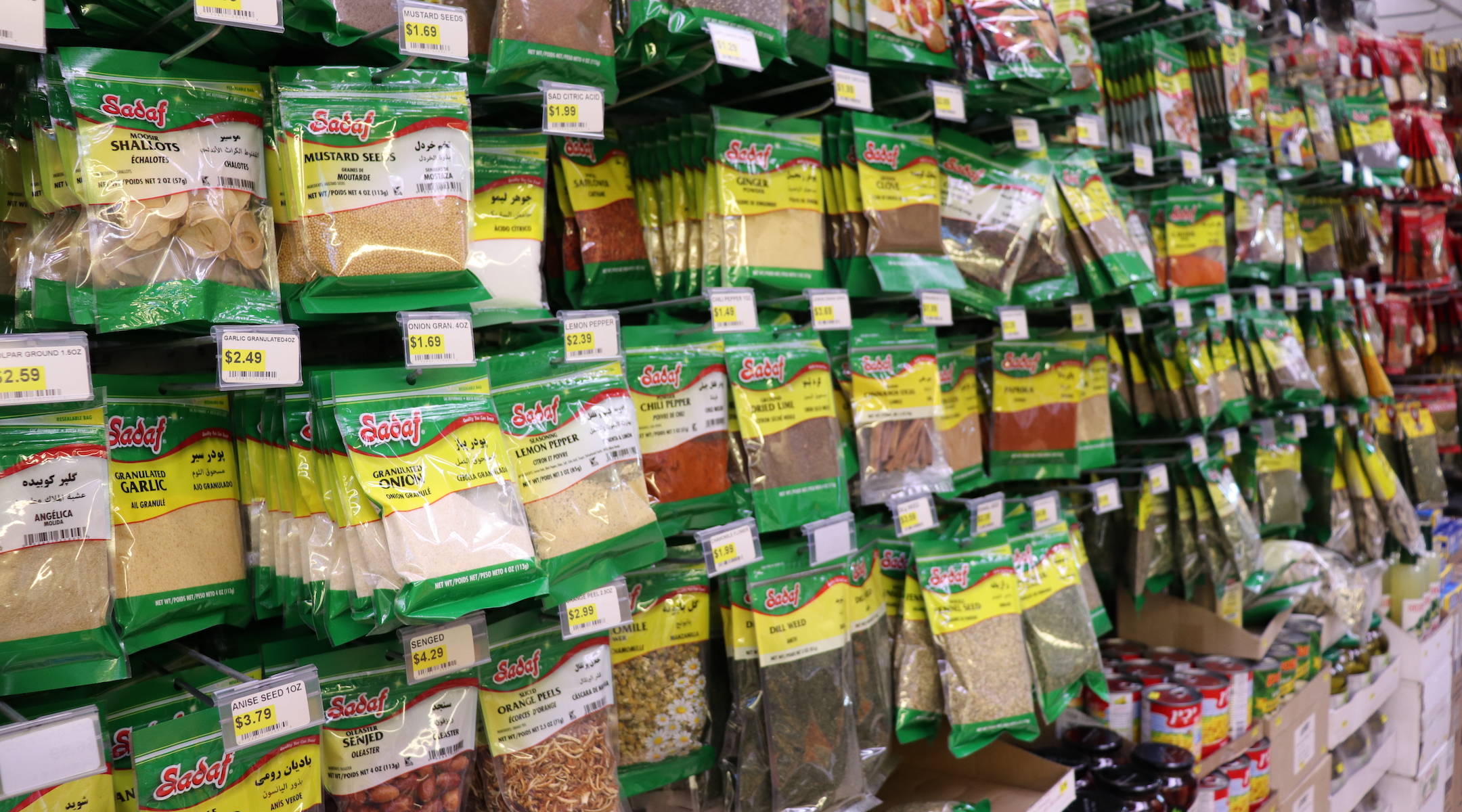
The array of Middle Eastern goods draws Iranians, Jews and non-Jews, as well as Arabs to the market. (Josefin Dolsten)
About 70% of customers are Iranian Jews, but the store also draws people from other backgrounds — including non-Jewish Iranians and Arabs, who are drawn by the store’s wide assortment of Middle Eastern goods.
Inside a glass case by the cookie counter, flowers, a mirror, candles, garlic, apples and painted eggs were carefully arranged in March — part of a traditional setup for Nowruz, the Persian New Year, celebrated by Iranians of all religious backgrounds.
“From the beginning we started like that,” Kamani said. “We don’t have only Persian Jewish, we have all the Persian — we have Armenian Persian, we have Muslim Persian.”
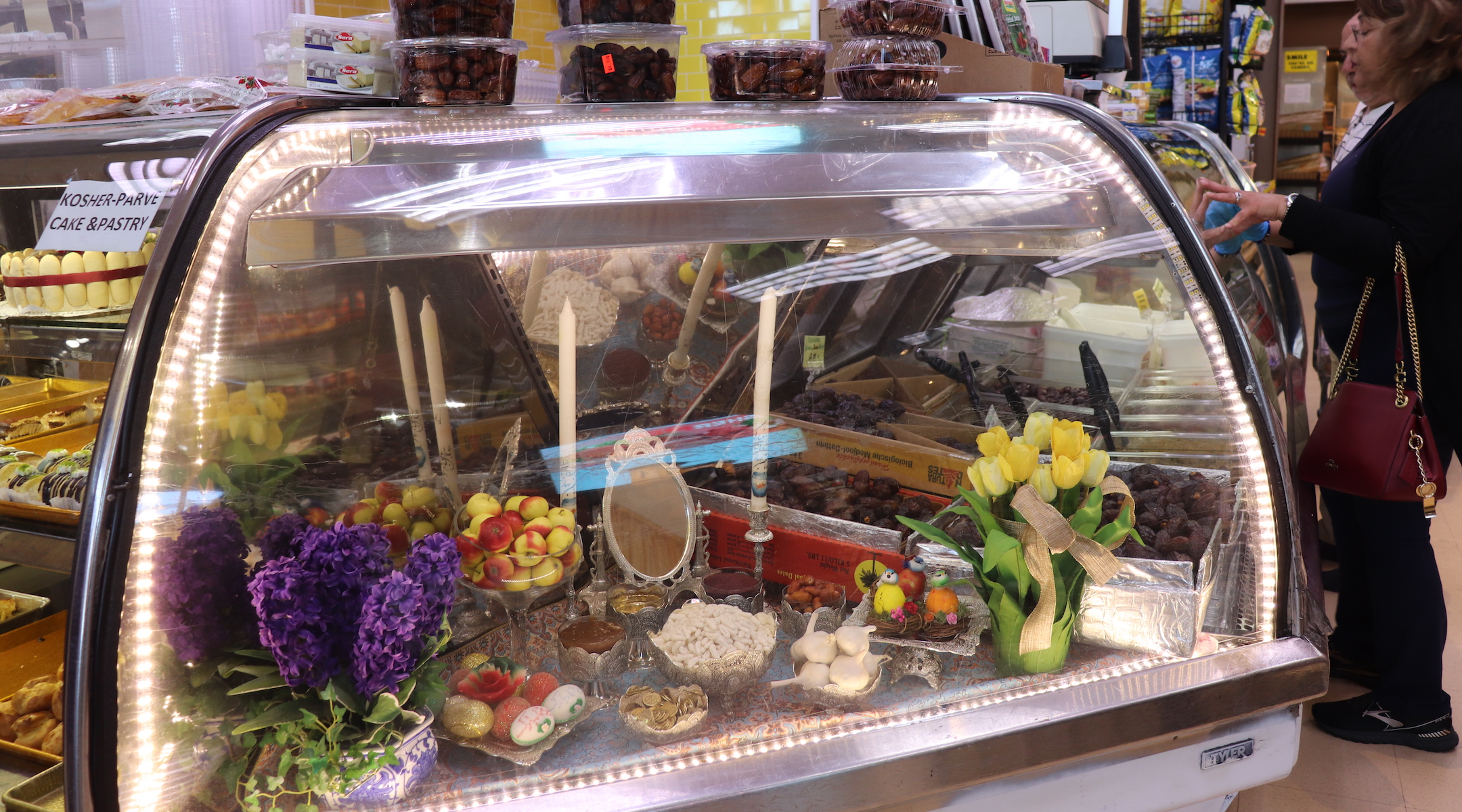
This is a traditional setup for Nowruz, the Persian New Year, celebrated by Iranians of all religious backgrounds. (Josefin Dolsten)
Here’s what customers had to say on a trip to the store in early March, before social distancing measures were enacted. The conversations have been edited for length and clarity.
Mojgan Lavi, 56
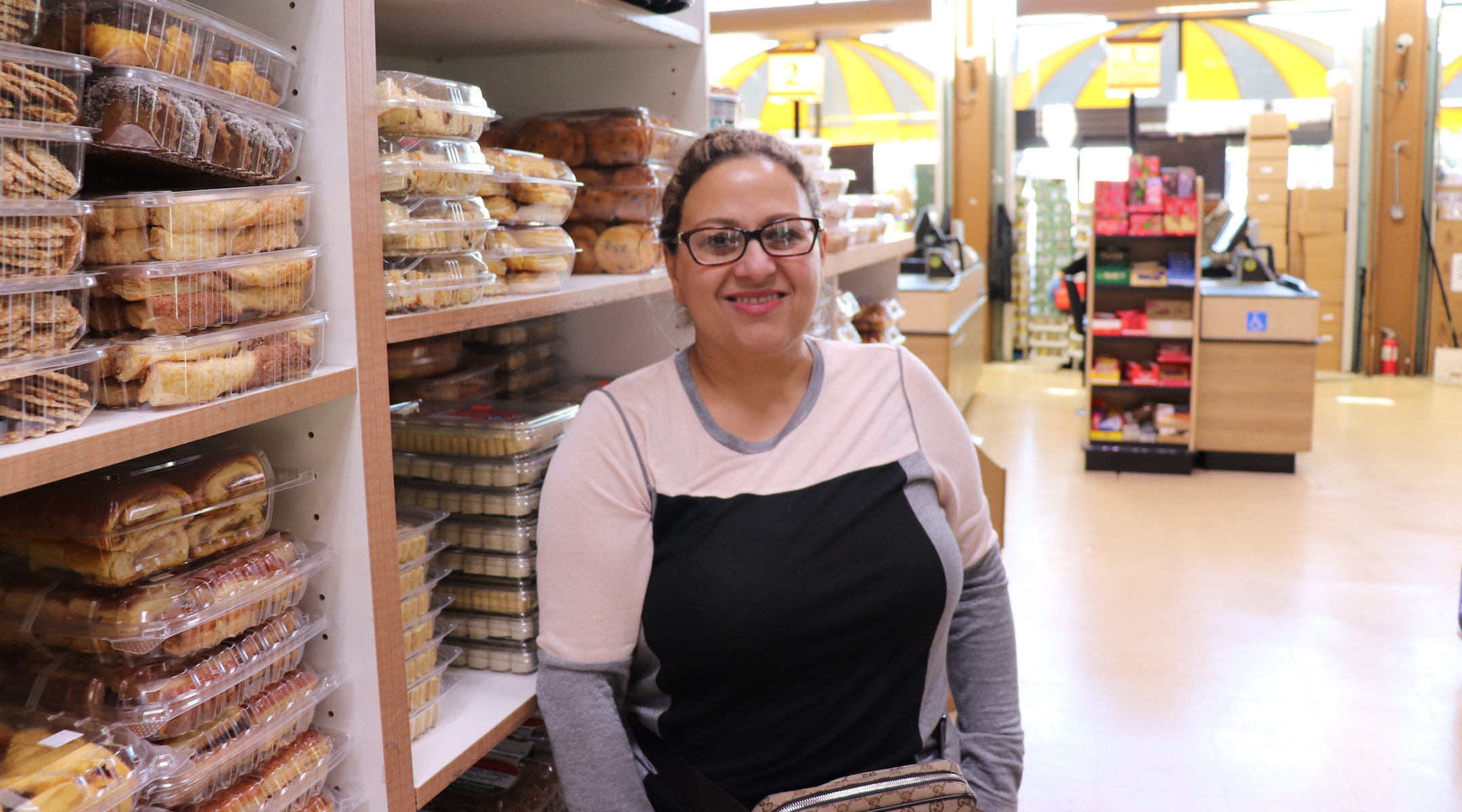
Mojgan Lavi (Josefin Dolsten)
Do you come here a lot?
Yes, since the day they opened.
Do you end up seeing a lot of people you know?
Oh my God, it’s like a reunion! It’s from old friends to my parents’ friends. It seems like everyone from the Persian Jewish community comes here. If you’re rushing to get out, it’s a little bit difficult. It takes a lot of time to meet and greet everyone. There’s a lot of other stores that have produce and everything but since this is the first and one of the oldest one, it’s the main place.
Do you have any funny stories that have happened here?
You overhear people talking, things about their children, older people talk funny about their life and you just stand there by the cucumber area, so it ends up being a lot of funny stories here.
What’s your favorite product?
A lot of things. They have a lot of American brands, they have a lot of Persian brands. The Persian cheese is really good. They have the best produce. So I can tell everything is my favorite. The fish is always fresh, so basically everything is good.
Diana Nemanpour, 52
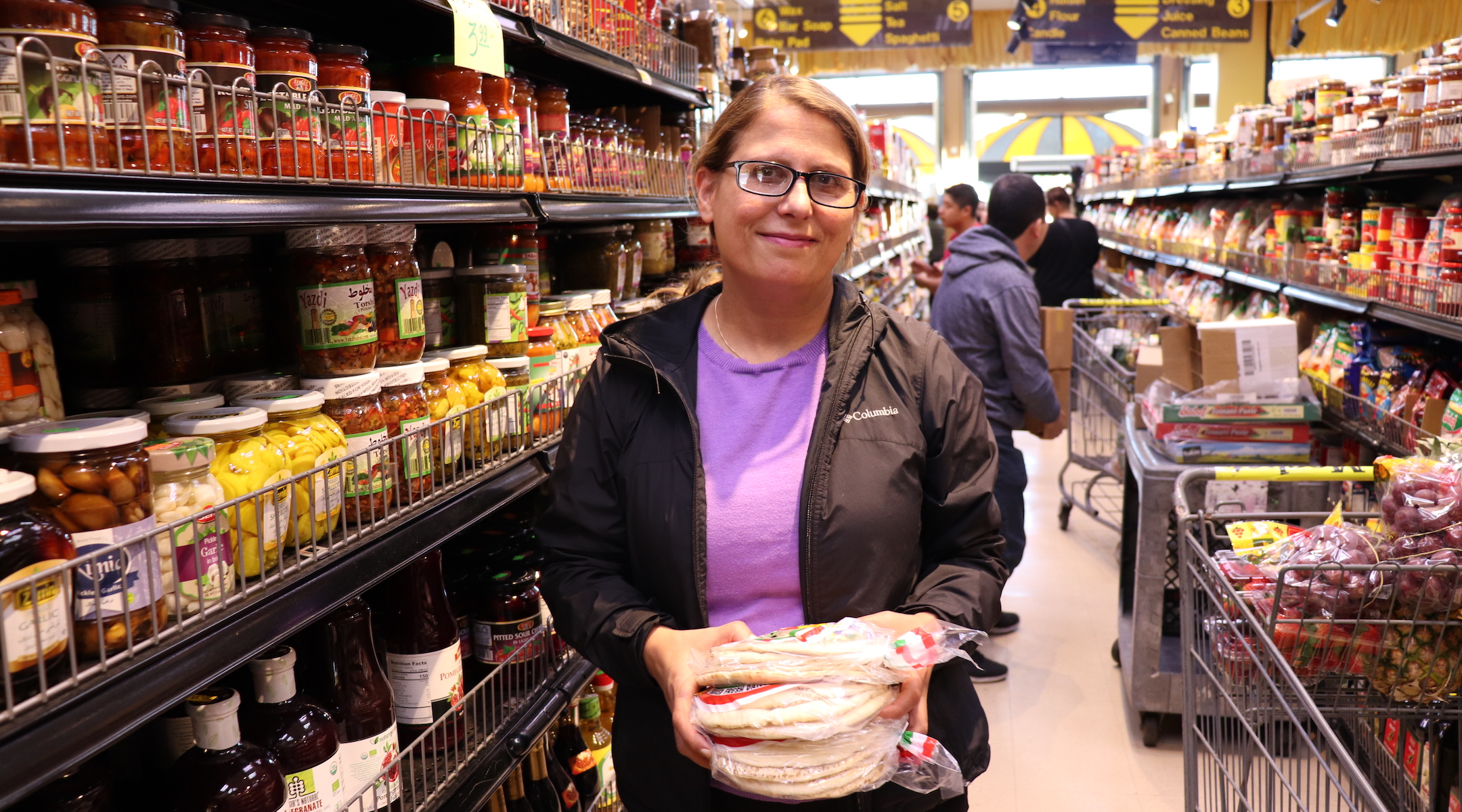
Diana Nemanpour (Josefin Dolsten)
What do you like about this store?
I’m coming here for 30 years. They have all kinds of selection and the good thing about this store is the price always is good. I love it here, it’s a friendly place. Any of my friends I want to see, I see here. I come here almost every day.
I heard that sometimes people set people up on dates here.
Usually I’m in a rush. I come, I find things, I go, but I see people they exchange numbers for their brother or for their son.
What do you want people to know about the Persian Jewish community?
It’s a good community, it’s the thing I love about the Jewish community, people might be very religious or might not be religious but they can sit in one place and they don’t label themselves with ultra-Orthodox, Reform — it’s just all the same thing.
What’s your favorite product?
I love the torshi, pickled vegetables. They’re very good.
Sharona Amin, 40
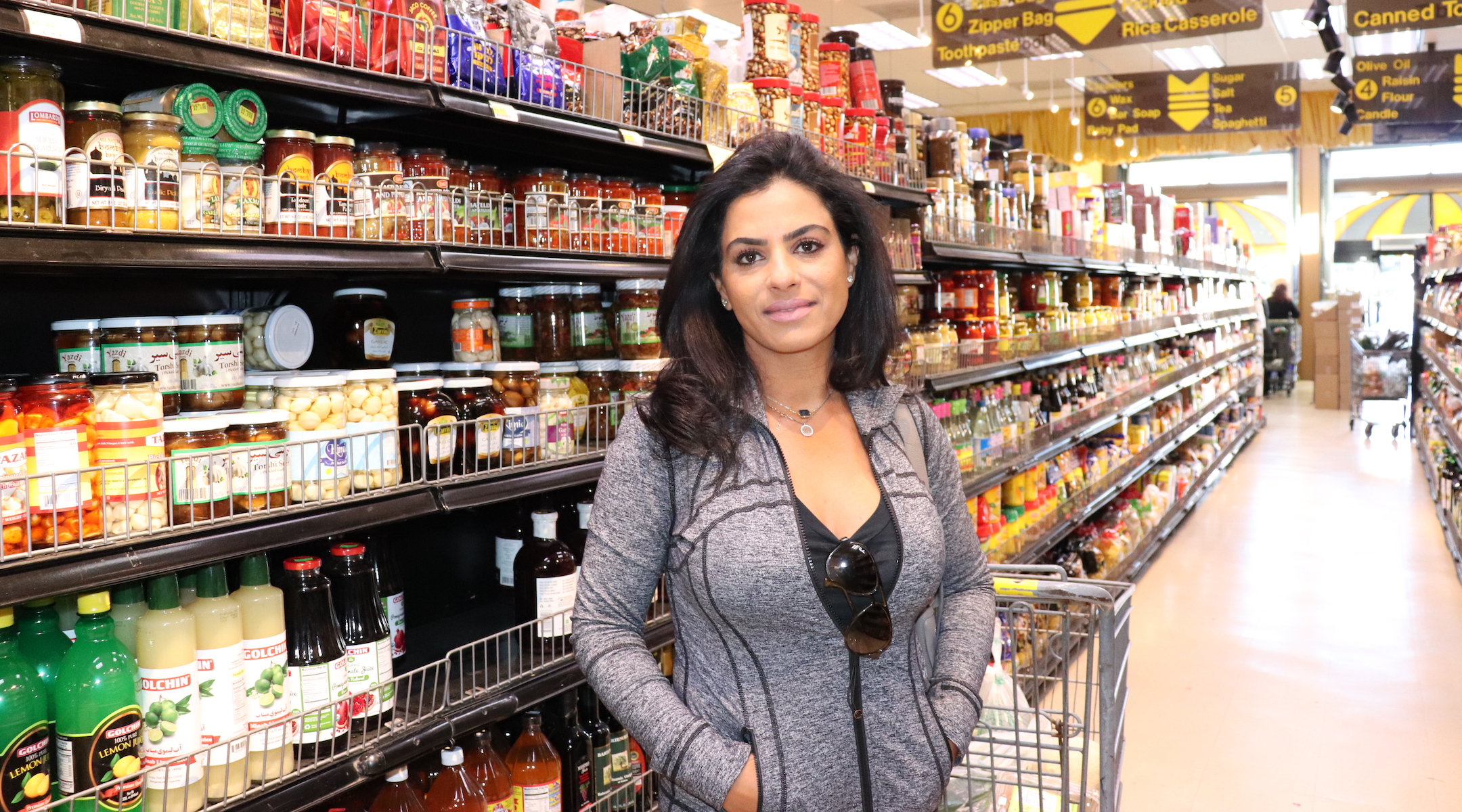
Sharona Amin (Josefin Dolsten)
Do you end up seeing a lot of people you know when you come here?
Yes, that’s why sometimes you try to come in and out, and it’s hard. It’s always very crowded. It just becomes a say hi and bye to everyone. I normally put my headphones in and walk around and do my thing and leave.
I heard that sometimes people set people up on dates here.
Yeah, they get a lot of that. People will ask are you married, do you have a husband — little matchmaker ladies.
You don’t seem too into that.
No.
What’s your favorite product?
I really come here for the Persian bread because not everywhere carries it.
Michelle Iranpour, 26
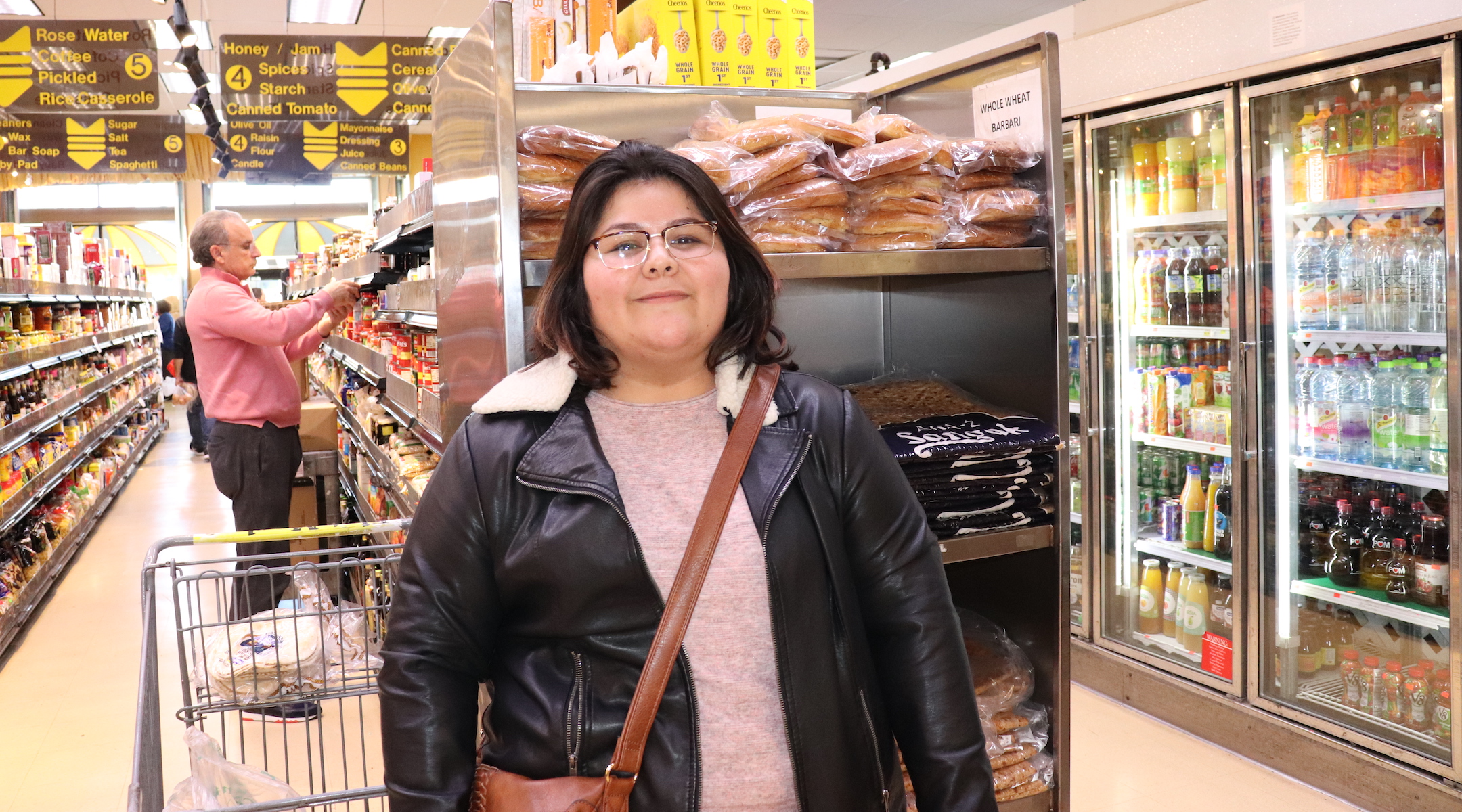
Michelle Iranpour (Josefin Dolsten)
What do you like about this store?
It’s probably one of very, very few stores that Iranians can shop for their own stuff that’s tailored to us. For instance, the sangak, the smoked fish, pistachios, all the baked pastries, especially for Nowruz. It’s a lengthy drive with traffic but I come out of my way to come here. Especially when I come with my dad it feels like this is what it would be like in Iran. My dad is Iranian but I was born here. We can’t go back there. My dad left with political asylum, and with everything the United States has with Iran it’s just not possible.
What’s your religious background?
I consider myself mostly spiritual, but I do observe a lot of my more Muslim religion from my dad’s side.
As someone who isn’t Jewish, what’s it like to shop here?
To me, since there is a disconnect between my own cultural identity, this is the closest thing I’ll ever get to ever experience what it would be like to be in Iran. So even though the religious element is different, at the end of the day they’re all still Iranian.
What’s your favorite product?
They have the chickpea cookies — I never remember how to pronounce it in Farsi. It’s powdery cookies made from chickpea flour and it has a red dot. They are a little pricier because they are so delicate to make and my parents always go out of their way to buy it for Nowruz.
JTA has documented Jewish history in real-time for over a century. Keep our journalism strong by joining us in supporting independent, award-winning reporting.
